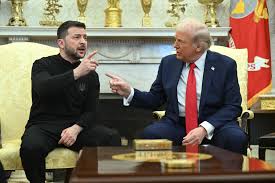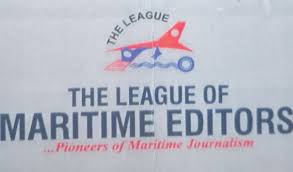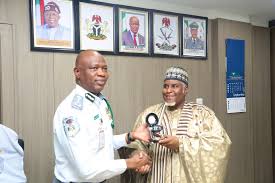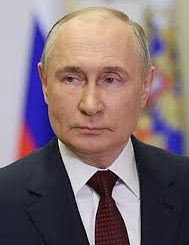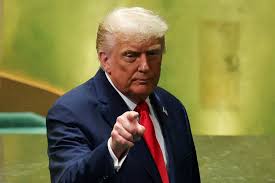By Stephen Ubanna
President of the United States, Donald Trump, is not a happy man, his source of unhappiness was the anti- American policies of the 21 – member countries of the BRICs currency block. The BRICs currency block includes Russia, India, China, Brazil and South Africa. The BRICs country, as they are popularly called had floated the new foreign currency that had been approved by the United Nations, UN, under the close watch of Antono Guterres as an alternative to the US, dollar.
The BRICs currency, according to informed sources is to guide trade among member nations before switching on to the local currencies of Rupee, Rubble and the Chinese Yuan to conclude all international transactions without resorting to the use US dollar which had been the dominant forex for such transactions over the years.
President Trump may have played into the hands of the other world Leaders like Narendra Modi of India, XI Jinping, China, Vladimir Putin, whose country, Russia, is at war with the neighbouring Ukraine, because of Volodymyr Zelensky, the country’s leader’s approval to the US government to build a military base in Ukraine preparatory to joining the North Atlantic Treaty Organisation, NATO.
Zelensky may have given his commitment to the European Union Leaders and the US, to join NATO, in order to drag the Organisation into the war with Russia. This is because of their agelong policy that ‘’an attack on one country is an attack on all’’ and therefore the need to join forces to attack such an aggressor.
The Russian President, Putin, would not take it being a major Crude oil supplier to India and China, traded in the US, dollars, coupled with the harsh tariff handed out to Russia, India, China, Brazil, and other countries ready to trade with the BRICs currency, may have strengthen the resolve of the BRICs nations to goo ahead with the printing of the alternative payment system.
Trump, was said to have sounded it loud and clear to the people of America that if the dollar should lose its value to the BRICs currency in the international foreign exchange market that would be like ‘’losing a major world war the country would never be the same again’’.
This may have informed why the US President, who is very generous in giving tariffs to countries had given additional 25% tariffs to India, China and Brazil, which buys crude oil from Russia and an additional 10% tariff to other countries which side with the policies of the BRICs alliance that go against the US interests.
President Trump who says he knows how “to play the game‘’ was emphatic that: Any county aligning themselves with the anti-American policies of the BRICs countries will be charged an additional tariff 10% tariff, insisting that there is no exception to this policy. Nigeria became the 9th partner country of the BARICS currency in January 2025.
The message was very clear that the African countries of Gabon, Liberia, Mauritania, Guinea Bissau and Senegal, described as friendly countries of Trump because of their rich mineral resources and whose Leaders were recently invited to the White House for an economic Summit are not exempted from paying the additional 10% the tariff on exports to the US.
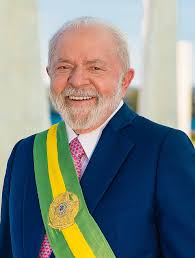
Angered by the US, additional tariff of 25% to Brazil, President Liuz Inacio Lula da Silva, was said to have petitioned Ngozi Okonjo-Iweala, a former minister of Finance and Coordinator of the economy during the Administrations of Presidents Olusegun Obasanjo and Goodluck Jonathan of Nigeria and now Director General of the World Trade Organisation, WTO, for consultations’’ to help alleviate the steep tariffs’’ imposed on Brazil and other countries that side with the BRICs policies by the US.
The Brazilian President petition to the WTO Leadership, according to informed sources is to seek relief from the total 50% tariff that the US President had slapped on the country’s goods sent to the US markets just as India also face the same 50% tariff for buying Russian Crude oil. Note that the US tariffs on Brazil, India and other countries that side with the BRICs policies took effect on Wednesday, August 6, 2025.
There is no gain saying the fact that a request for consultations is usually the first step in WTO’s trade dispute process. It was said to be part of the responsibilities of the world trade body to intervene in economic disputes between countries through its procedures for negotiating settlements.
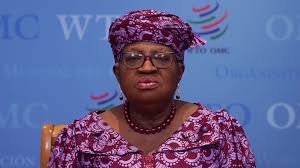
Just as much of Indian, manufactured IT, digital systems as well as the Chinese produced smart phones, Computers, and ships enter into the US market, Vice President Geraldo Alckmin of Brazil had confirmed that about 35.9 of the country’s manufactured goods, that equals about four percent of the country’s total exports worldwide which are sent to the American market would now be subject to the 50% tariff, which may have adverse effects on the country’s economy in the coming months . Enough on the BRICs currency and the President Trump newly imposed additional tariff on member nations and its allies including Nigeria.
The Nigerian government may not have waited to get a letter from President Trump about the additional 10% tariff, which had pushed up the total tariff on Nigerian exports to the US, which includes crude oil to 24% as it targets the West and Central African regional markets and other alternative markets.
Hon. Jumoke Oduwole, minister of Trade, under the present President Bola Ahmed Tinubu’s Administration who had described the US- Nigeria trade relationship as mostly on energy trading, was said to have cited efforts to strengthen other trade channels to call the bluff of the US.

Appearing on the CNN, recently, the minister may have spoken the mind of President Tinubu, when she stated that ‘’there are other big markets across the world’’, meaning that the US, is not the only big market. She may have alluded to the Asian countries of India China, Japan, Brazil and United Arab Emirate, UAE, markets where Nigerian goods could be sold as well.
Given an insider information as minister of Trade, she had said that Urea is in high demand in Brazil just as the West African country over the years have had trading partnership with China, Japan and the UAE, as it continues to look for more opportunities for the nation’s businesses.
. She may have taken a cue from Ibrahim Traore, an Army Captain and Junta Leader of Burkina Faso and arrow head of the Alliance for Sahel States, AES, when she acknowledged the competitiveness of the US market but noted that President Tinubu’s government is looking at ‘’the country’s integration strategy across Africa with the African Continental Free Tade Area, AfCFTA’’.
The Oyo state born politician may have been encouraged to give it back to the US, President that he can continue to increase its tariff on Nigeria and other countries that side the BRICs countries policies, stating that the country’s non-oil exports to the rest of African countries have risen to 24% in the first quarter of this 2025. This is a clear message that African countries are prepared to trade among themselves and the BRICs countries and ready to cut off the US and other Western nations’ market.
It would be recalled that the tariff -hungry US President had initially placed a 14% tariff on Nigeria exports to the US, which many believes included ‘’destabilising challenges to price competitiveness and market process from Nigerian businesses in the non-oil sector’’.
Notwithstanding that Nigeria cannot away its back completely from the US market as the country remains a strategic partner to countries like India, China, Japan, Brazil and the UAE, but the Nigerian minister of Trade was said to have made those that cares to listen is that the Nigerian government focus for now is on actualizing its Commercial investment strategy aimed at provision basic infrastructural facilities to the people and further development of the country’s Agricultural sector to become self-reliant in food production as well as engage in digital trade with the old trading partners as new friends are being made.
It would be recalled that President Trump had suspended the 14% tariff on Nigerian exports last April which was said to have opened the door for negotiation between the two countries. The Nigeria minister had revealed that that the country made a surplus of US$3.29 billion trading with the US.

However, with the ongoing trade war between the US and India, which imports crude oil from Russia and sells to the US and other European Union, EU, countries, believed to be at very high prices, it could not be ascertained whether the Nigerian crude oil and gas trade, which accounts for the country’s major exports to the US and 90% foreign exchange revenue for the country would be excluded from the 10% extra tariff as was the case last April.
Bashir Adewale Adeniyi, MFR, Comptroller General, Nigeria Customs Service, NCS, and the Customs Comptrollers overseeing the imports and exports trades at the nation’s seaports, airports and Land border areas are waiting for a policy statement from Adebayo Olawole Edun, minister of Finance and Coordinating minister of Economy on next line of action to follow in charging and calculating the country’s tariff on imports and exports trade from the US.


